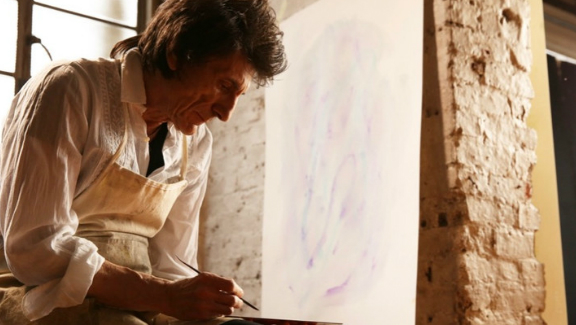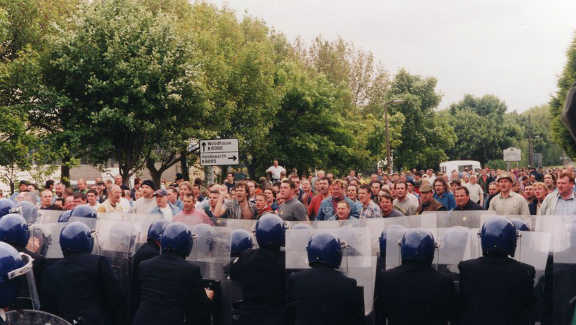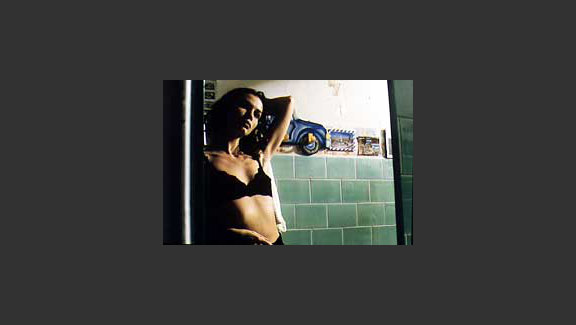The Loss of Sexual Innocence
Synopsis
Told in a non-linear structure, The Loss of Sexual Innocence is the story of Nic, told through the crucial, sometimes humorous an often heart-breaking episodes of his life. As the film weaves it's vivid, hypnotic narrative, we catch glimpses of what makes Nic the man that he is, tracing incidents that happen to him as a five year old boy, as a twelve year old adolescent, as a 16 year old teenager, and as a fully grown man.
Cross-cut with the tale of Nic is the classic parable of Adam and Eve, which serves as an allegory to the events of Nic's life and, the two tales intertwined, ultimately serves as a powerful summation of the loss of innocence of not just Nic, but of the humanity of our species.
Bold, visually striking images, combined with a sonorous musical soundtrack composed and recorded by Mr Figgis make for a deeply moving, visually exhilarating piece of filmmaking that grows increasingly powerful with each viewing.
Details
- Year
- 2000
- Type of project
- Features
- Running time
- 1 hr 50 mins
- Format
- 35mm
- Director
-
Mike Figgis
- Producer
- Patrick Wachsberger
- Editor
- Matthew Wood
- Screenwriter
- Mike Figgis
- Director of Photography
- Benoît Delhomme
- Sound
- Pawel Wdowczak
- Composer
- Mike Figgis
- Executive Music
- Mike Figgis
Categories
Production Status
Production Company
Red Mullett Contact: Jaquie Glanville 30 Percy Street London W1P 9FF Tel: 020 7636 7870 Fax: 020 7636 7860
Sales Company
Columbia Tristar Films (UK) 25 Golden Square London W1R 6LU
Page updates
This page was last updated on 12th May 2025. Please let us know if we need to make any amendments or request edit access by clicking below.
See also
You may also be interested in other relevant projects in the database.
 Somebody Up There Likes Me
Somebody Up There Likes Me
Director: Mike Figgis
Year: 2019
Ronnie Wood is a genuine, 24-carat rock star guitarist. He has paid his dues, played hard, lived fast (in every sense) and somehow survived to tell the tale. And tell it he does, in this revealing, biographical documentary, which charts Wood’s stellar and storied career. From his childhood and entry into the 1960s music scene, through to his time with the Jeff Beck Group, achieving fame with The Faces alongside bandmate Rod Stewart and finally becoming an indispensable and permanent member of The Rolling Stones, Figgis captures it all. Featuring terrific archive footage, along with candid interviews with a very charismatic Wood and his many legendary friends, this is the perfect rock and roll treat. Official Selection BFI London Film Festival 2019 - Create Strand - World premiere Official Selection Tribeca Film Festival 2020 - Spotlight Documentary
 The Battle of Orgreave
The Battle of Orgreave
Director: Mike Figgis
Year: 2001
In 1984 the National Union of Mineworkers went on strike. The dispute lasted for over a year and was the most bitterly fought since the general strike of 1926, marking a turning point in the struggle between the government and the trade union movement. The Orgreave coking plant was the site of one of the miners' strike's most violent confrontations with the police. It began in a field near the plant and culminated in a cavalry charge through the village of Orgreave. Artist Jeremy Deller’s work 'The Battle of Orgreave', staged seventeen years later, was a spectacular re-enactment of what happened on that day. It was orchestrated by Howard Giles, a historical re-enactment expert and the former director of English Heritage’s event programme. More than 800 people participated in the re-enactment, many of them former miners, and a few former policemen, reliving the events from 1984 that they themselves took part in. Other participants were drawn from battle re-enactment societies across England. Jeremy Deller's reenactment of the 1984 clash between striking miners and police at Orgreave in South Yorkshire on 17 June 2001 was filmed by Mike Figgis for Artangel Media.
 Miss Julie
Miss Julie
Director: Mike Figgis
Year: 2000
It is a hot midsummer's eve and the old Count departs his estate to celebrate elsewhere. He leaves behind his beautiful daughter Julie, the last in the long line of his noble family. She is alone with the servants. Miss Julie is despondent after the breaking off of her engagement to be married. She dances and drinks with the servants who certainly do not accept her as one of their own. A little drunk, she finds herself alone in the kitchen with Jean, her father's footman. Jean is a strange man. Handsome and anarchistic, resentful of the class system but greedy to rise to the top. For many years he has watched and desired the young Miss Julie. They carry on drinking and become involved in an intense and revealing conversation which draws them together as the night goes on. They hide in his room when the servants come into the kitchen and he seduces her. But by now we have seen that Miss Julie is in a deeply distressed and sometimes unbalanced state of mind. Tragedy follows as Jean humiliates her and pushes her towards the self-destruction that she has been hinting at all evening. She kills herself.
